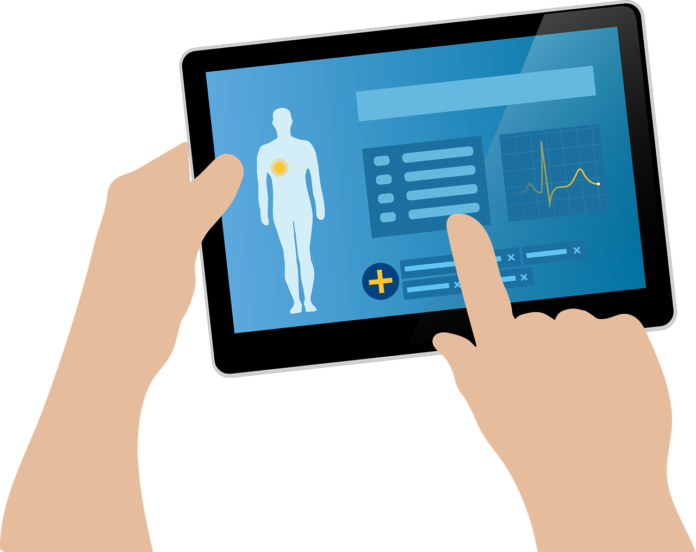Last Updated on March 13, 2024 by Nasir Hanif
Before you even know what HIPAA is, let me answer your question first. Yes, a mobile health app needs to be HIPAA compliant.
Table of Contents
Now, let’s move to the obvious question. What is HIPAA?
Stands for Health Insurance Portability and Accountability, HIPAA, an act that was signed by President Bill Clinton in 1996, is a series of governing standards that describe the lawful utilization and disclosure of protected health information (PHI). Governed by the Department of Health and Human Services (HHS) and executed by the Office for Civil rights (OCR), HIPAA compliance, HIPAA empowers users to effortlessly, sincerely, and securely leverage healthcare IT solutions without compromising on privacy and confidential information.
The Office for Civil Rights (OCR) part in meticulously maintaining medical HIPAA compliance begins with regular guidance on new issues that affect healthcare in investigating common HIPAA violations.
With a bunch of interlocking governing rules, HIPAA compliance is a must and should practice that healthcare organizations incorporate into their business to protect the confidential information, privacy, and security of their uses’ health information.
What are some of the classic examples of HIPAA compliance in mobile health applications?
There are three essential examples of HIPAA compliance for mobile health apps.
- Secure and private messaging
In this, the secure and integrated tools will help with two-way communication between a patient and healthcare provider.
- Private hosting services
This will help the hosting services against all cyberattacks, including security against malicious attacks like DDoS.
- Secure data cloud storage services
This means the outsourced data storage management services such as Microsoft Azure, AWS, etc.
Now, these are some of the examples of HIPAA compliance.
Le’s come back to the main topic of this blog: Does my mobile health application needs to be HIPAA compliant?
If you are not sure as to whether or not your mobile app needs to be governed by HIPAA, then ask yourself the below vital questions.
- Who will use your mobile application?
If you come under a covered entity, such as a nursing home, pharmacy, physician, hospital, etc. then your mobile app must be HIPAA compliant. Business people who gather information, store, process, or share protected health information (PHI) are also subjected to HIPAA compliance. In addition, under the 2013 Omnibus rules, all 3rd-party suppliers including HIPAA Compliant Software Developers, assume liability for HIPAA violations.
Of course, there are also some examples where entities do not need HIPAA compliance. For instance, your app software holds PHI, but cannot transfer the data to a CE, then your app doesn’t need HIPAA compliance. An example of this scenario is wellness tracking devices like smartwatches and wearables like bracelets that track steps or count calories.
- What kind of data will your mobile health use, share, and store?
If your health application utilizes, shares, or stores PHI (Protected health information), then HIPAA compliance will not be optional in your case. PHI includes even a slight amount of information that identifies a patient and shared between business associates and a covered entity.
When protected health information is
What Type of Data Will Your Application Use, Share, and Store?
If your mobile health app uses, shares, or stores protected health information (PHI), HIPAA compliance is not optional. Protected health information includes any medical information that could identify a patient and is exchanged between a covered entity and a business associate.
When coupled with personal identifiable information (PII), protected health information can exposed to huge risks for HIPAA violations. So it is recommended to have a crystal clear understanding of what type of patient data you planning to use and how you will protect that information to secure your patients’ privacy and eradicate the risk.
Will your mobile app be encrypted or not?
Wondering what’s encryption? Usually, app encryption refers to the kind of technology that your mobile app utilizes and its security standards. If your app manages protected health information at a minimum level, then you will have to have a data security solution that can safely encrypt the confidential information of your patients. Also, only authorized members should have access to this information.
When you encrypt your patients’ confidential information at the app level, you can protect it before it in a database or cloud. In addition, App Transport Security (ATS) will make sure you link your mobile health application to the back-end servers on HTTPS (SSL certificate) so that you can encrypt the information while it is still in sending mode.
Now that you have a clear picture of who will use or download your application, how you will be handling the sensitive data of the patients, and security protocols for your app, you can figure out whether your needs to be HIPAA compliant or not.
Summing up
HIPAA compliance is important to secure institutional healthcare information and also to prevent sheer regulatory fees. So it is always better to develop the app taking the HIPAA requirements into consideration.
Also, working with HIPAA Compliant Software Developers who already have experience in building HIPAA compliant healthcare applications would be the right choice to make sure you adhere to government rules and secure your users’ data.
Read More: Mobile App Development: How Your Enterprises Can Benefit From It?
























